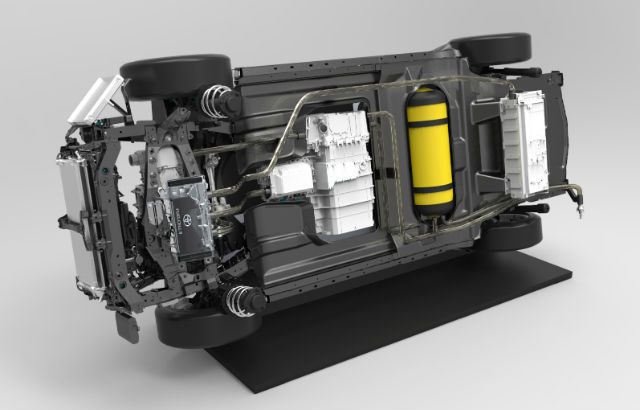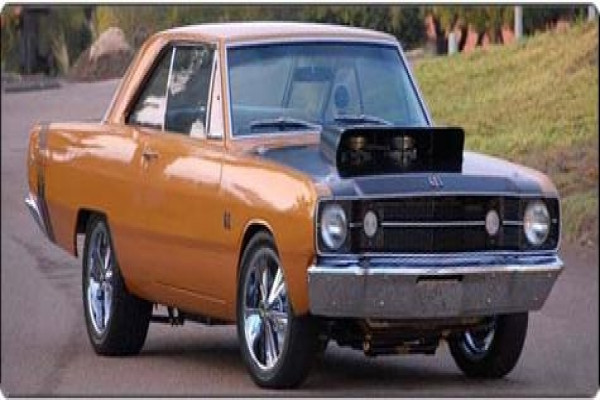Toyota will raffle off their first Fuel Cell Vehicle (FCV) to a lucky California resident. It will be the first time a major automaker has offered a fuel cell vehicle in a raffle.
The FCV will be Toyota's first fuel cell vehicle in production when it hits dealer showrooms late next year. Powered by hydrogen, the FCV will be one of the few fuel cell production vehicles on sale.
Hydrogen fuel cell cars produce electricity by combining hydrogen and oxygen, used to drive onboard electric motors. The tailpipe emissions - if one could call them that - are pure water vapor. Each "gas" tank of hydrogen will power the FCV for around 300 miles.
Through a partnership with the Environmental Media Association (EMA), Toyota will raffle the first production FCV. Because of California's infrastructure for hydrogen fuel cell cars, only California residents will be eligible for the raffle. Tickets will cost $100 each, or $500 for six tickets, available at www.biddingforgood.com. All proceeds will go to the EMA, a nonprofit focused on using celebrities and the media to promote sustainable living.
"Hydrogen fuel cell technology is the next big leap in automotive history, and through this extraordinary drawing, we're seeking bold drivers ready to embrace that future," said Bob Carter, senior vice president of Automotive Operations at Toyota.
The winner of the raffle will be announced at the EMA Awards, an awards ceremony which celebrates the entertainment industry's efforts to spread awareness about the environment. Toyota has been the main sponsor of the EMA Awards for 14 years.
Hydrogen power has been a debated topic in the automotive industry, but Toyota hopes the new FCV will change the public's perception of fuel cell cars. According to Toyota, hydrogen fill stops will take around the same amount of time as gasoline fills, and the growing infrastructure looks to be shaping up positively. Toyota's calculations currently equate hydrogen to around the same price as gasoline per mile.
The hydrogen grid in California is small, with 20 hydrogen filling stations planned to be operational by 2015 (many of which are in the state's hotbeds of technology, the Bay Area and Southern California). Toyota and Honda, two California-focused early adopters in fuel cell technology, have been on the forefront of hydrogen infrastructure. By 2016, there will be 45 more stations, and by 2024, there should be around 100 hydrogen filling stations.











